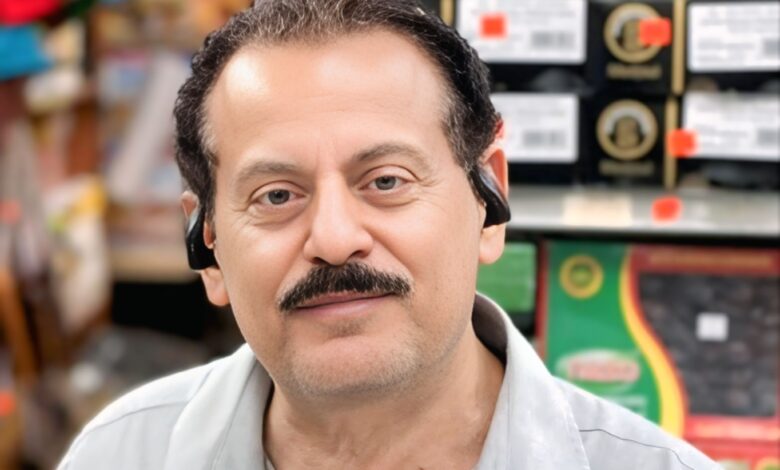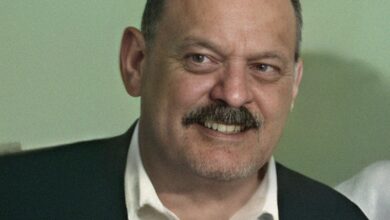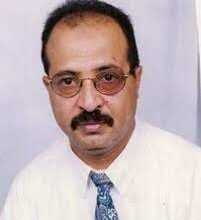In the Red Square

Yemeni mp
Ahmed Saif Hashed
In the midst of the Red Square, at the heart of Moscow, you find yourself enveloped in a fantastical world, narrating wonders that surpass your modest imagination, despite its authenticity. Your imagination, which could not conceive the scene you now stand upon, witnessing with your own eyes, leaves you hesitant to believe, immersed in astonishment, even though it is real and certain.
I appeared to myself as one who had lost their mind under the shock, unable to distinguish between the reality of the moment and the void. I ask myself, gaping in disbelief at what I see: Am I truly here, or not? Is this world before me, surrounding me in every direction, indeed a tangible reality as I perceive it, or merely an unfounded illusion with no basis in truth? It is a scene I had never envisioned before, and I remain reluctant to accept it.
This is another world, shockingly different from the one I came from or had grown accustomed to. Imagine suddenly being transported from your remote village, still pleading for rain from the heavens while paying dearly for the precious money you earn through toil, to a civilization that causes rain to fall precisely when and where it desires. It is a vast contradiction between a country whose people pray for rain while, in reality, it imports wheat from lands where its inhabitants do not pray for it. This is the cultural shock, the immense disparity between your village, lost in the forgotten corners of the Earth, and the heart of Moscow, the capital of the mighty Soviet Union. It is a contrast that encompasses all wonder.
As I wander through the Red Square, awestruck, my gaze shifting amidst the dazzling sights, I find myself thinking: I can envision Isra and Mi’raj, or a flying carpet, or the tales of One Thousand and One Nights, or the jinn who have transported me from my simple, familiar world to this realm brimming with magic, beauty, and marvel.
I can imagine that I rubbed a ring or Aladdin’s lamp and summoned that giant, who emerged colossal, adorned with amulets and necklaces upon his powerful neck and muscular arms. I can also picture him bald, save for a thick tuft of hair atop his head, tied and cascading down his broad back.
I can envision the giant spreading his vast arms, lowering his head, and saying to me like an obedient servant: “Your wish is my command… We are at your service… Ask and wish.” So I wish to be taken to this enchanting world where I stand now, gazing wide-eyed. Thus, I began to imagine what transpired and what I have become now. From the overwhelming shock, reality appeared as a dream. Such is how things can sometimes flip when we cannot believe them, overwhelmed by astonishment.
Here, the grandeur and magnificence make you feel as though you are living a legendary life filled with wonder. Everything here captivates your eyes, snatches your memory, then returns it to you, now holding all your observations and amazement, what you have seen that you do not know, and will not forget, remaining in your memory until you perish.
The colorful domes, the architecture, the towering and imposing walls, the towers in all their forms, the church with its nine domes, the Kremlin, Lenin’s mausoleum, the tomb of the unknown soldier, the eternal flame, the main store of the city, the cobblestone streets, the ancient fortresses, the royal palaces, the state museum, and everything that whispers: “History passed through here.”
The Red Square, the pulsating heart of the capital, the most famous gathering of cultures from around the world, filled with carnivals, parades, love, weddings, and special festive atmospheres. Pilgrims come to Lenin’s mausoleum from every nation and corner of the globe.
Here lies the Kremlin, the official seat of the Soviet government. Here is the capital of a superpower that holds the world’s fate in its hands, sharing its influence with several great nations, possessing the means to destroy the world ten times over. Here, one can understand what the Sudanese student who jumped from the tenth floor in Moscow said before his suicide, inscribing on the famous vodka bottle: “Clear as tears… Strong as Soviet power.” The only thing that diminished the strength and majesty of that power was the black market and the ailing economy, as revealed by the fluctuation of the dollar.
Where the dollar is priced at 75 kopecks at the state bank, we exchanged it on the black market, through a friend, for three rubles, if my memory serves me right. That day, I felt that this power was not as strong as it seemed, that its economy was suffering greatly, and its health was far from well.
* * *
We arrived at the Red Square in our ceremonial green military uniforms, adorned with bright stars on our shoulders, attracting attention. Many gazes from passersby and those standing in the square were directed at us. At first, we thought our magnificent attire was the reason for their stares, believing its distinctiveness caught their attention. We noticed some looking at us, whispering to each other, leaving us uncertain about what they were saying! Yet their smiles suggested that something about us sparked amusement, perhaps even laughter at times! Confusion draped over us as curiosity was piqued.
We took our position in the long queue leading to Lenin’s mausoleum. A number of girls nearby were whispering and glancing at us, then giggling, while we were absorbed in our bewilderment.
One of them asked us, a smile gracing her lips: “Which country are you from?”
We replied, “From Yemen.”
Another said, “You are quite young, yet you hold high ranks.”
We were even more surprised and explained, “This star on our uniforms signifies the rank of second lieutenant, awarded upon graduation from the military academy.”
Before our translator could relay our answer, a third girl, her curiosity evident, inquired: “Are you the sons of princes?”
Our bewilderment deepened, astonished by the question! While they all laughed, the translator clarified, revealing the reason. The star we wore, equivalent to theirs, indicated a major rank in their army. Their laughter faded, while our laughter erupted upon understanding the reason, dispelling the confusion that had nearly suffocated us.
Now, as I write this, our laughter feels like tears. We mocked the reality that prevailed, even nicknamed Yemen “the land of a million colonels,” deriding the rampant distribution of ranks as gifts, rewards, and bribes, outside the law and regulation. Today, military ranks are handed out like fruit.
All the powers of the de facto authorities in Yemen compete to bestow these ranks upon their followers and supporters. You can find numerous individuals who have not completed middle or high school holding the rank of colonel or brigadier. You could also find an equal number of underage children bearing the rank of major or lieutenant colonel. “Oh, what a mess!” And it is even worse to find some promoted within days, weeks, or months.
In this age of chaos, dominated by warlords and de facto authorities, where what remains of our state is disintegrating, the world has every right to laugh at us for a thousand years, witnessing ignorance in Yemen wearing significant military ranks, observing our naïve children being granted heavy military titles and herded like cattle into the furnace of war.
We stood by the eternal flame and the tomb of the unknown soldier, witnessing the meticulous changes in the guards occurring every hour. We concluded that everything here is executed with utmost precision. It is a symbolic representation reflecting the state, with its disciplined and highly accurate protocols. You see the soldier standing steadfast, as if made of wax, not even blinking or moving a muscle during his duty. Your curiosity urges you to touch him to verify whether he is a real soldier or crafted from another material, but your mind and surroundings hold you back from doing so.
We visited the museum and saw various statues and figures, including a small bust of Lenin that his wife, Krupskaya, claimed in her lifetime was the most accurate depiction of him, as if he were truly there. Lenin, a man I admired, albeit with some reservations—there is no sanctity for anyone.
We waited in a long line until we finally glimpsed Lenin lying in a glass coffin, dressed in his elegant clothes. As you pass by him, just a few meters away, you try to scrutinize his details, finding nothing amiss in his form or appearance.
After a day filled with wonders akin to a thousand and one nights, we returned to the hotel.
* * *






